Search
Remove Ads
Advertisement
Summary 
Loading AI-generated summary based on World History Encyclopedia articles ...
Search Results
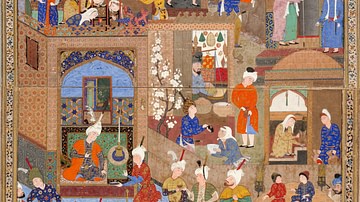
Article
Persian Miniature Painting
Persian miniature painting is a courtly and aristocratic art, with exquisite colors, balanced compositions, and meticulous attention to detail. Although its origins can be difficult to trace, many consider the Arzhang, the illustrated book...

Article
Colour & Technique in Renaissance Painting
There were three principal painting techniques during the Renaissance: fresco, tempera, and oils. In all of these techniques, colour was an important part of the painter's armoury, allowing them to create images that would strike a chord...
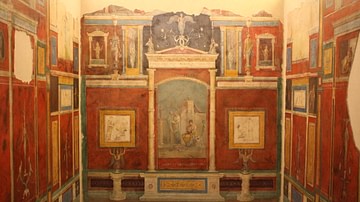
Article
Roman Wall Painting
The interiors of Roman buildings of all description were very frequently sumptuously decorated using bold colours and designs. Wall paintings, fresco and the use of stucco to create relief effects were all commonly used by the 1st century...
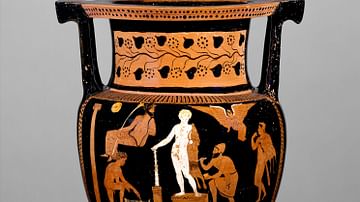
Image
Greek Vase Painting of an Artist at Work
Red-figure vase depicting an artist painting a statue of Hercules, identified by his club and lion-skin cape. Greek and Roman statues were frequently painted in Antiquity, to impart a more impressive and life-like appearance. Images of artists...
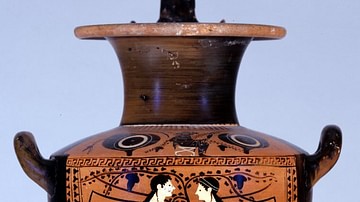
Definition
Ancient Greek Pottery
Greek pottery has four main types: Geometric, Corinthian, Athenian Black-figure, and Athenian red-figure pottery. Pottery vessels were made for everyday use such as the two-handled amphora for storage, the single-stem kylix cup for drinking...

Definition
Ancient Greek Literature
Greek literature has influenced not only its Roman neighbors to the west but also countless generations across the European continent. Greek writers are responsible for the introduction of such genres as poetry, tragedy, comedy, and western...

Definition
Greek Colonization
From around 800 BCE, ancient Greek city-states, most of which were maritime powers, began to look beyond Greece for land and resources. As a consequence, they founded colonies across the Mediterranean. Trade was usually the first step in...
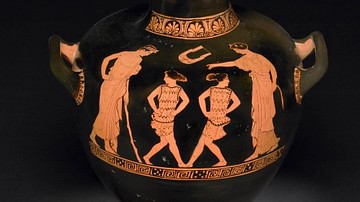
Definition
Ancient Greek Dance
In ancient Greece, dance had a significant presence in everyday life. The Greeks not only danced on many different occasions, but they also recognized several non-performative activities such as ball-playing or rhythmic physical exercise...
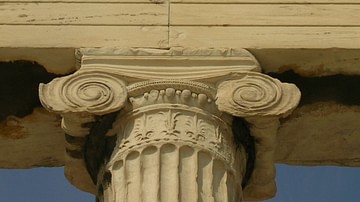
Definition
Greek Architecture
Greek architecture is concerned with simplicity, proportion, perspective, and harmony in buildings. Greek architecture includes some of the finest and most distinctive buildings ever built. Examples of Greek architecture include temples...

Definition
Greek Alphabet
The Greek Alphabet developed from the Phoenician script at some point around the 8th century BCE. The earlier Mycenaean Linear B script, used primarily for lists and inventories, had been lost during the Greek Dark Age, and the technology...